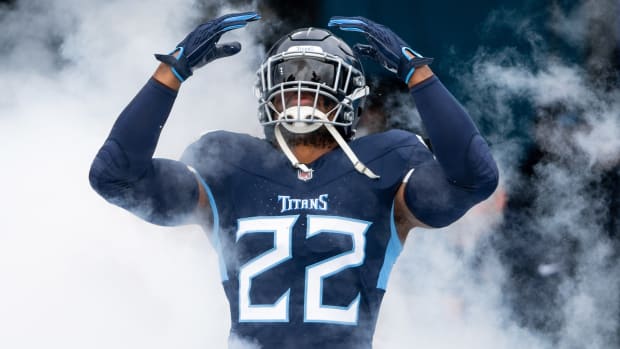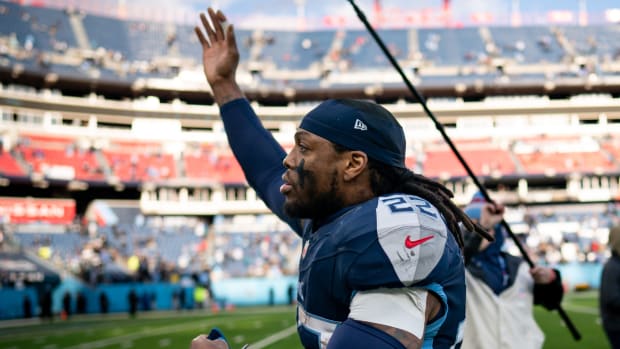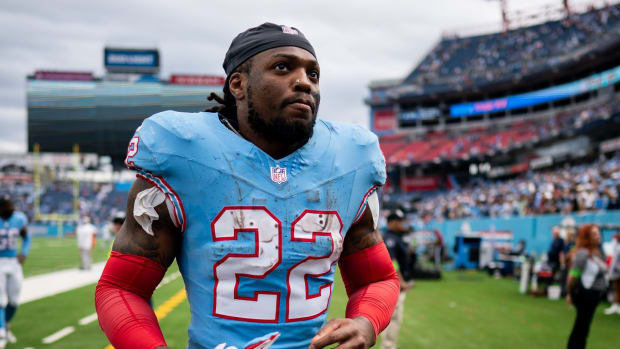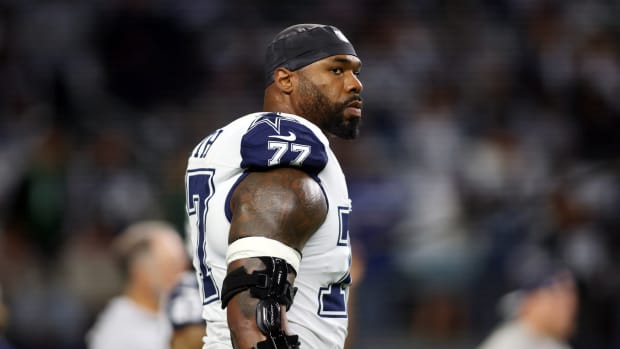Robinson's Biggest Offseason To Date Awaits
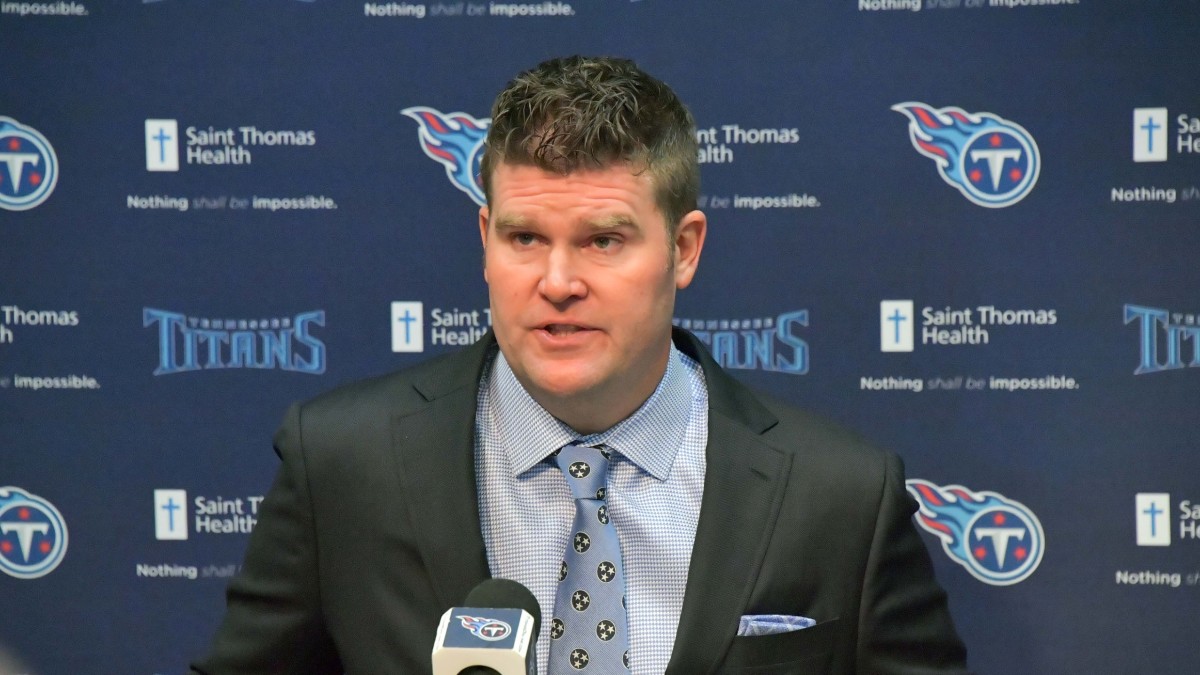
The Tennessee Titans still have their eyes on the prize. With six weeks remaining in the regular season they are one game out of first place in the AFC South and half of their remaining contests are against the two teams that currently share the top spot (Houston and Indianapolis).
That does not mean it is too soon to look ahead to the offseason. Especially not with what awaits when the current contract year runs out next March.
Looming decisions at critical positions and with some of the Titans’ most prominent players will make the next offseason arguably the most important to date in Jon Robinson’s tenure as general manager, which began in 2016. Will he be able to keep together the core of the current roster? Or will he even want to do so? Is it worth the gamble to give new contracts to aging veterans or is it better to look for newcomers? Have recent first-round draft picks established themselves as franchise building blocks or are they merely filling gaps until their rookie deals expire?
Of the players currently on the 53-man roster, 44 have come along under Robinson’s watch. For better or worse, he is responsible for the current state of things. The big question is what he can do to make it even better going forward.
A look at some of the Tennessee Titans’ significant upcoming roster issues:
Logan’s Run: Cornerback Logan Ryan is in the final season of the three-year, free agent contract he signed in 2017 – and he is having arguably the best year of his career. Given that he is 28 years old, his performance feels much more like an outlier than it is a step up in production that will continue for the next three or four years. The situation is compounded by the fact that Adoreé Jackson, a first-round pick in 2017, has lost playing time to Ryan this season. In a perfect world, Jackson would be hitting his peak at this point and it would be easy for the Titans to tell Ryan to hit the road. That is not what happened.
The Quarterback Question: It is no longer an issue of which quarterback the Titans should try to re-sign. It is abundantly clear that Marcus Mariota is in his final days as a member of the Tennessee Titans. The issue is whether the Titans can or even should keep Ryan Tannehill – and at what cost. Eleven quarterbacks currently have contracts worth an average of $25 million or more per year and seven others have deals worth between $20 and $25 million. Having gone from Vince Young (first round, 2006) to Jake Locker (first round, 2011) to Mariota (first round, 2015), the idea of trying to build with a young quarterback one more time can’t be appealing. Tannehill, though, has never appeared in a playoff game, let alone taken a team anywhere near the Super Bowl.
First-Round Futures: Tackle Jack Conklin, Tennessee’s first-round draft pick (eighth overall) in 2016, is scheduled to become a free agent because the team declined to exercise its fifth-year option on his rookie contract. That means the Titans have to decide whether to bring him back, if they can. This May, Robinson will have to decide whether to go to a fifth year with two 2017 first-rounders, wide receiver Corey Davis (fifth overall) and cornerback Adoreé Jackson (18 overall). Davis clearly has not played up to his draft position even though he was the team’s leading receiver in 2018. Jackson, like Conklin, did some of his best work as a rookie and since has seen a dip in his performance. Failure to exercise the fifth-year option is (almost always) an admission that things did not work out as expected, given that first-round picks are expected to be foundational players. The idea of conceding failure on three such players drafted over two seasons (they are Robinson’s first three first-round picks) cannot be appealing for any general manager.
Oh Henry: Derrick Henry was the third of three Titans’ second-round picks in 2016 and the only one who has worked out anywhere near as well as expected. Outside linebacker Kevin Dodd was a complete bust and defensive lineman Austin Johnson never has been more than a bit player. Henry, on the other hand, is all but certain to lead the team in rushing for the third straight year and to top 1,000 yards for the second in a row in the final year of his rookie contract. He has game-breaking speed and has become more reliable on a down-to-down basis. However, big money contracts for running backs rarely work out well, and Henry does not contribute much in the passing game as a receiver or a blocker. So, there is a limit to how much the Titans should be willing to spend for him, which makes it likely he will see if he can get more from another team.
On The Line: Dennis Kelly has been a valuable backup in three-plus seasons in Tennessee. But he has been exactly that – a backup. At 30 years old, he is one of the eldest of the Titans’ pending free agents. Given the issues on the offensive line this year, the type of security that Kelly provides has a certain value. But is this the time to move on in favor of someone who is younger, cheaper – and offers the potential to eventually develop into a starter?
Feeling Special: Coach Mike Vrabel has pointed out linebacker Daren Bates’ contributions as the leader of and tone-setter for the special teams numerous times in recent weeks. Bates was signed in 2017 to help upgrade Tennessee’s coverage on kicks and he has done exactly that. He also has served as a hype-master of sorts for the entire team. Like Kelly, though, he is never going to be an every-down player (for the defense, in his case) and with recent draft picks like safeties Dane Cruikshank and Amani Hooker and linebacker David Long making notable contributions on special teams, a player like Bates, who has earned an average of $2 million per season with the Titans, might be a luxury they no longer can afford.

